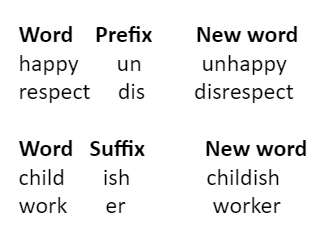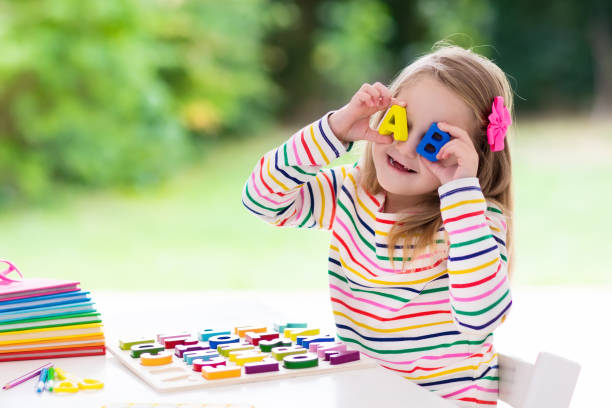Confident Readers: Writing, Spelling, and Vocabulary Expansion
Once children are familiar with the relationship between letters and sounds, they’ll have the tools to use that knowledge for reading, spelling, and writing independently. By the end of phonics teaching, children should be reading most words automatically, especially if it combined with direct instruction of the most common sight words. They can also use their phonics knowledge to help them spell. At this stage, the teaching of spelling rules such as adding -es to words ending in -s, -ss, -z -ch -sh -x to form plurals and knowledge of which suffixes/ prefixes usually go with root words to form new words will be helping your child to write with independence. For example:

Tips:
-
You can help your child to expand their vocabulary by finding out the meaning of words they don’t already know by using a dictionary or asking others.
-
Keep reading with them! Access to a variety of reading materials (e.g., story books, information texts) will expose children to a range of writing genres. Talk to your child about the features of the kind of text they are reading, think about the purpose of the text/ what message the text is trying to give.
-
To support comprehension, ask your child to think about what is being read. Ask your child questions about the characters and have them make predictions about what might happen next. Ask them to take a look at the pictures for extra clues.
-
After reading the story, have them summarise what happened including the beginning, middle and end. You can also ask them to check if their predictions about the text were correct. This will help them understand the structure of what they read which will them when writing their own texts.

Games:
-
The Invisible Man
Similar to ‘Hangman’ (but less gruesome and more child-friendly), this game lets your child exercise their spelling abilities. Draw a stick person and ask your child to spell a word. Draw a blank line for each letter of the word. Every time the child guesses a wrong letter, erase part of the stick person. The aim of the game is to spell the word correctly before the stick man becomes invisible.
-
“Back” to Spelling
Let your child trace letters on your back to spell out a word. You can guess the word they are trying to spell. Take turns guessing.
-
Make practising writing fun! Create stories together by taking it in turns to write a line of the story. Let your imaginations flow!

Your child’s teacher should be able to tell you what stage your child is at and answer questions you have about how your child is learning to read. For some children, acquisition of letter-sound relationships can more challenging than we would typically expect. If you have concerns about your child’s reading abilities, don’t hesitate to get in touch with us at ELG by complete our online enquiry form, emailing us at [email protected], or calling us at +86 21 5206 6273.
